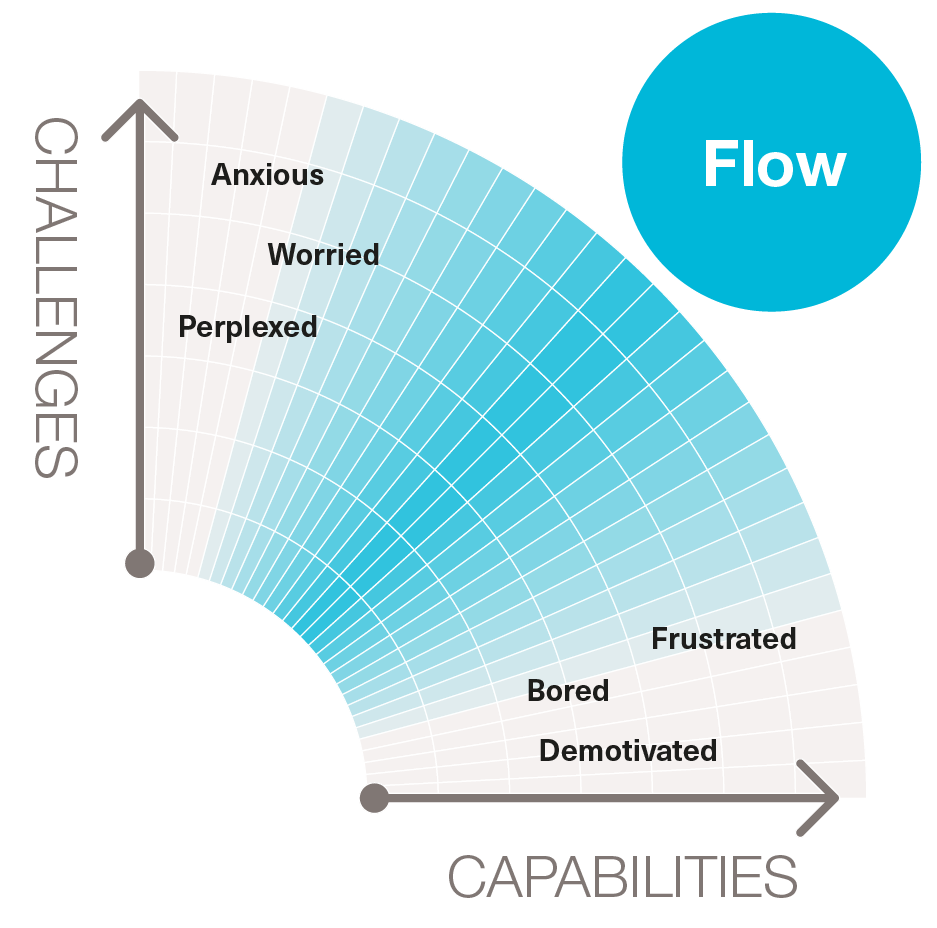People make decisions all the time. Even when we delegate or delay deciding, that too is a decision.
Some decisions are straightforward. Past experience or previously-acquired knowledge can tell us what to do.
But the more complex the context, the more we rely on judgement or discretion. This is the decision-making capability that comes into play in unfamiliar, volatile or ambiguous situations where we do not, and cannot, know what to do.
In an ideal situation, our decision-making – our capability – will match the level of complexity – the challenge – of our work. When this happens, we are “in flow”.

However, if our capability is out of sync with these challenges, the resulting under- or overwhelm can affect not just our own well-being, but that of the organisation around us.
Find out more about Bioss’s three integrated practices:
